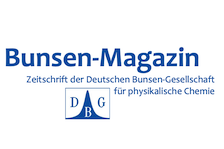 During the summer of 2019, WCW Visiting Scholar Hauwa Ibrahim and her collaborators implemented a STEAM (science, technology, engineering, arts, and math) curriculum at three summer camps in northeastern Nigeria. More than 1,200 students aged 10-14 participated in student-centered, interdisciplinary, community-engaged, culturally responsive, hands-on STEAM projects.
During the summer of 2019, WCW Visiting Scholar Hauwa Ibrahim and her collaborators implemented a STEAM (science, technology, engineering, arts, and math) curriculum at three summer camps in northeastern Nigeria. More than 1,200 students aged 10-14 participated in student-centered, interdisciplinary, community-engaged, culturally responsive, hands-on STEAM projects.
With minimal instruction, students performed science experiments related to density, pH indicators (bases and acids), osmosis, bodily reflexes and reactions, the period of pendulum, genetics (recessive and dominant), fingerprint analyses, Oobleck, and blood typing kits. In technology and engineering classes, students had the opportunity to build baking soda and vinegar-powered rockets, create support structures to absorb shock to prevent eggs from breaking when dropped from the second floor of a building, and make self-supporting da Vinci bridges. Over 80% of the materials used were sourced locally. This article details several of the activities on the syllabus.
Ibrahim and her team’s long-term goals are to positively impact STEAM education and build children’s STEAM skills and knowledge so they can compete in local, regional and global economies, as well as to reduce youth unemployment by teaching cultural traditions and entrepreneurial skills that can be used to generate income.

